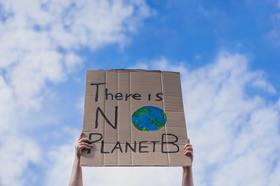WEF president urges ’that global challenges need global solutions’, especially as ’our planet is on fire and we have to deal with it’
Around 84% of global experts and leaders are worried or concerned about the outlook for the world, according to research by independent international organisation the World Economic Forum (WEF).
Speaking during a press briefing that launched the 17th edition of WEF’s Global Risks Report 2022 last week, Saadia Zahidi, managing director of WEF, noted that “less than 4%” of research respondents ”were optimistic” about the world outlook.
The report, which explored both long and short-term risks, surveyed nearly 1,000 global experts and leaders.
Reflecting on the risks that had worsened over the last two years amid the Covid-19 pandemic, respondents listed social cohesion eroding (27.8%), the livelihood crisis (25.5%), climate action failure (25.4%), mental health deterioration (23%) and extreme weather (22.7%).
Zahidi said: “In the next couple of years, there continues to be deep concern about the climate and social side of things – extreme weather, livelihood crisis, climate action failure, infectious disease, social action cohesions.”

Meanwhile, respondents cited longer-term risks they were concerned about for the next five to 10 years as including climate action failure (42.1%), extreme weather (32.4%), biodiversity loss (27%), natural resource loss (23%) and human environmental damage (21.7%).
Short-term challenges
Børge Brende, president of the WEF, said that in the short term, risks include global supply chain challenges, the pressure of inflation and a looming debt crisis.
He continued: “On top of this, we also see geopolitical tension in a fractured world. The reality with all these main challenges is that global challenges need global solutions.
“Our planet is on fire and we have to deal with it.”
WEF’s report highlighted two main challenges:
- The lack of implementation of what was agreed at COP26 using a net zero way of thinking.
- The consequences of this lack of implementation.
For Zahidi, key concerns leaders need to be aware of two to five years in the future include climate issues (35.7%), social issues, cyber security failure (14.6%) and geoeconomic confrontations (14.8%).
“You are starting to see quite a mix of things that are the bridge between the short term and the longer term,” she said.
In terms of risk mitigation efforts internationally, Zahidi added that the WEF’s report found that respondents are “fairly optimistic” about how trade facilitation, natural disaster relief, the health crisis and international crime is being managed.







No comments yet